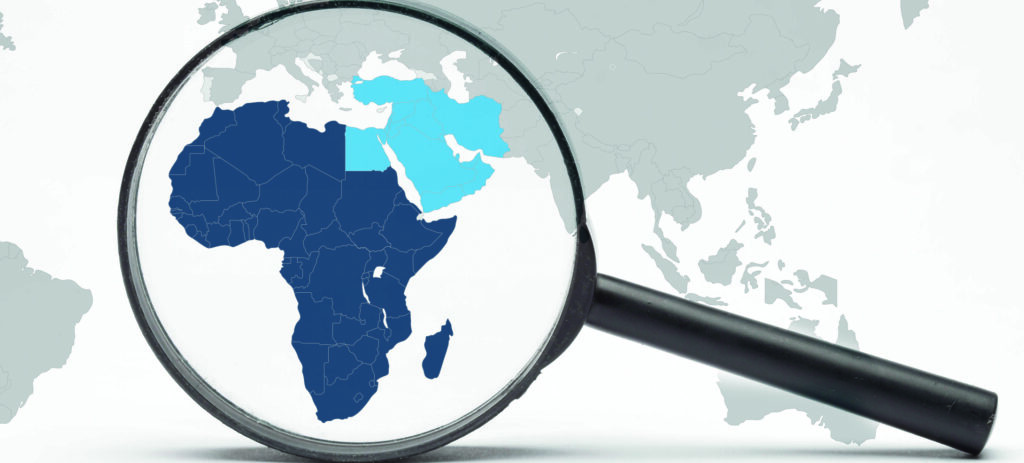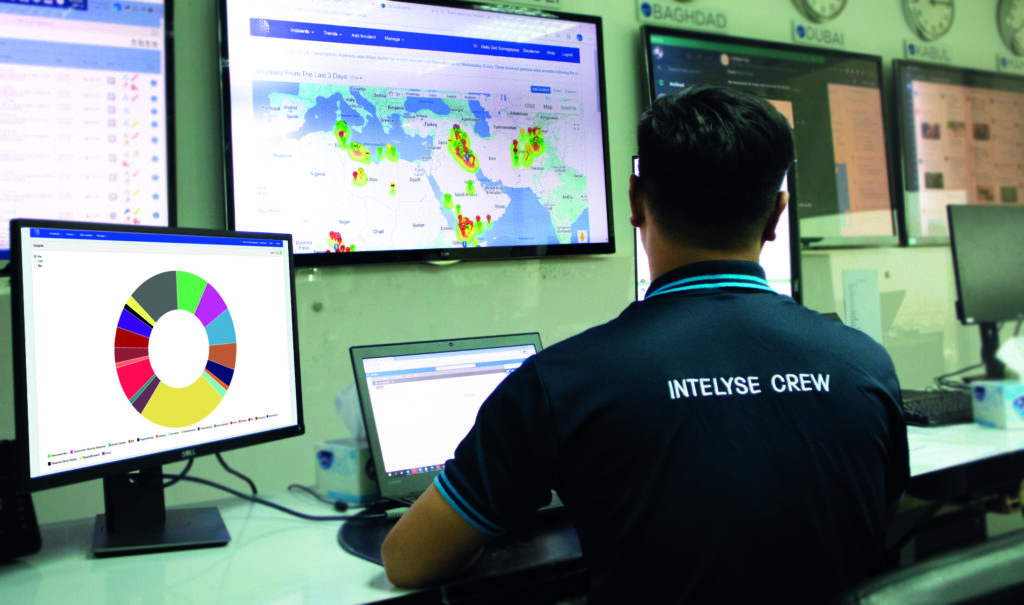Working in collaboration with a georisk expert can make all the difference for multinationals seeking to achieve market goals in the Middle East and Africa region. However, it can be difficult for leaders to know what to look out for when deciding on a partner.
Risk insight, quality of counsel, and the value that a company gets out of it are dependent not only on the quality of the risk expert, but also on the establishment of a collaborative, cohesive working relationship. Whether you want your partner to set your risk strategy, support business travel risk management, or simply provide impartial advice, here are five criteria to keep in mind.
1. Quality of information and insight
There are many organizations offering clients real-time data, which are typically sourced from a range of social feeds of on-the-ground sources. However, the quality of risk reporting and insight provided can vary between providers. The difference lies in how the data is collected, as well as how it is consolidated, interpreted, and analyzed to extract insight.
The right partner must collate data from multiple information streams, integrating information from many different domains, including human sources. A strong risk analysis must also consider other sources, including local media, social media, satellite information, YouTube, and plane- and ship-tracking websites.
During your selection process, ask questions such as:
- How is the data collected?
- What is the process for information ratification?
- What is the analysis process?
2. Brevity vs information overload
When you are dealing with an evolving situation, potential crisis, or business-critical decisions, being able to make swift, informed judgments is essential. To coin a phrase, companies need to see the right data, all the right data, and nothing but the right data, to avoid the risk of ‘information overload’.
To ensure that your risk reports are exactly what you need to facilitate quick decision-making, ensure you see multiple examples of reports and alerts during the selection process.
Intelyse reports are structured to be punchy, concise, and to minimize the time needed to understand and respond. They include only information that our experts judge to be specifically relevant to our clients. We cut through the noise and are focussed on what clients need to know.

3. Regional specialization of the right scale
Depending upon the importance of the Middle East and Africa region to your organization, a global generalist or regional risk specialist might be better suited to your needs.
Is the provider in question global, approaching the Middle East and Africa as just part of a global scope of operation? Do they run and operate their own network on the ground, or have they outsourced their analysis and data collection? Is data collection and analysis their core business, or a side note? You want to be confident that your provider has the focussed depth of local knowledge necessary to parse all of the data collected and make trustworthy recommendations.
On the other hand, does a Middle East and Africa specialist have enough coverage and accessibility to support you in real-time? Do you have access to expertise whenever you need it, allowing you to quickly reach experts from analyst to strategic level to clarify or ask questions?
Ensure that your risk expert partner is of a size and scale that matches your business needs.

4. Autonomy backed by premium support
The most efficient partnership models for risk strategy and analysis have a strong emphasis on autonomy, backed by premium support where needed.
In a fast-paced environment, it is important to be self-sufficient where possible in terms of access to data and insights. In an ideal world, your strategic risk partner will not only allow you to independently access reports and reporting as needed, but also make them accessible without specialist tech support, complicated and costly installations, or extensive training. It is also very useful to be able to download reports in a range of formats to present information both internally and externally, making a business case for changes, improvements, or decisions.
While engaging with potential partners, ensure you receive a trial period where you can explore the features and capabilities of the platform by yourself.
5. Credentials and accreditations
There is no one-size-fits-all accreditation for risk analysis providers, but there are certainly credentials that suggest a well-rounded and well-trained company, which you can trust as a partner. International Organization for Standardization (ISO) certifications such as ISO 9001, ISO 27001, and ISO 22301 are strong proof points for quality, consistency, information security, and enterprise resilience.
Not having ISO certifications isn’t a deal-breaker, though, as there are other credentials to look for. Firstly, does your provider have operational and genuine on-the-ground experience in the countries in which you work? You want solid, lived experience as well as at-a-distance analysis.
Are you confident that your provider has strategies in place to avoid biases and echo chambers? One thing to look for is a diverse workforce, with analysts from a range of backgrounds – i.e. not all from the military, the same university, or the same nationality.
And finally, are the reports they provide comprehensive, analytic, succinct, and – above all – useful? You want to be confident that your partner is reporting on trends (and considering what next) and not just describing events. Our reports, for example, always incorporate four key elements, as follows:
- Descriptive: explains what happened in an easy-to-visualize way.
- Diagnostic: explains why something happened, and uses our knowledge of history and specific country to suggest root causes.
- Predictive: forecasts what might happen and answers the what next question, using analysis of previous trends and in-depth country-specific expertise.
- Prescriptive: recommends actions based on the forecast, examining how each scenario could potentially impact the client and suggesting actions to seize opportunity and mitigate risk.
Just as every organization’s circumstances and priorities are unique, so too are the criteria that constitute the ideal risk analysis and strategy partner. Use the five criteria outlined above as a starting point and refine them based on your organization’s priorities. You can then be confident that you are choosing the right risk analysis partner to provide you with the insights you need to ensure enterprise resilience through the fast-changing socio-political environment prevalent in the Middle East and Africa.

